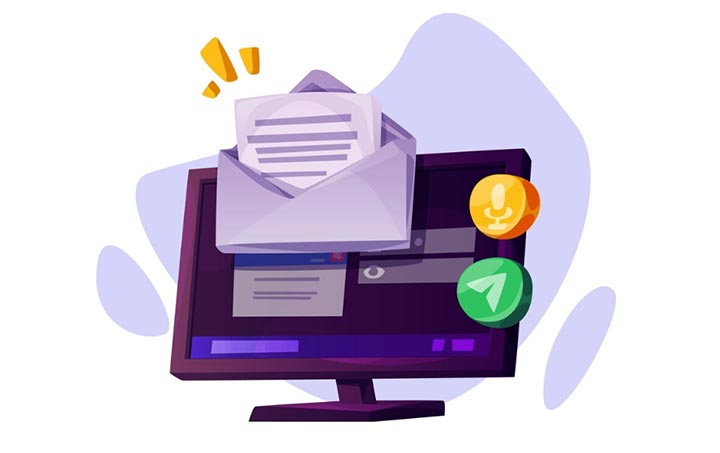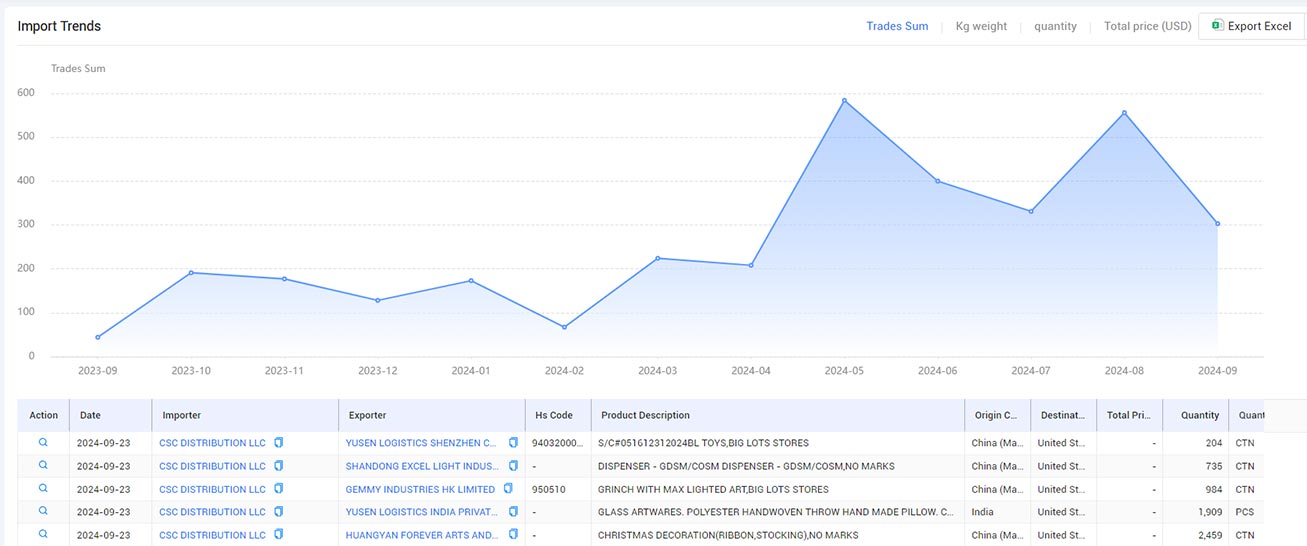 Trade Data Provider
Trade Data Provider
 25-09-2024
25-09-2024
In foreign trade, sending bulk cold emails is a commonly used strategy for customer development by many companies. This method allows businesses to reach a large number of potential clients in a short period of time, which can be particularly appealing for companies that are new to the market and aim to quickly build a customer base. However, while bulk emailing can generate potential opportunities, it also comes with several risks and challenges.

I. Advantages of Bulk Cold Emailing in Foreign Trade
1. Broad Coverage and Rapid Market Expansion:
The primary advantage of bulk cold emailing is its ability to reach a large number of potential customers in a short period of time. For businesses looking to enter new markets or expand their operations quickly, this can be highly beneficial. By utilizing this approach, companies can swiftly disseminate information about their products or services to a broad audience, increasing their chances of being noticed.
2. Relatively Low Cost:
Compared to other marketing strategies like attending trade shows or running advertisements, sending cold emails is relatively cost-effective. This makes it particularly attractive to small- and medium-sized businesses or startups with limited budgets, as it offers a high return on investment in terms of outreach.
3. Convenience of Automation Tools:
Many email marketing automation tools available today allow businesses to efficiently manage and send bulk emails. These tools can help schedule emails, track open and response rates, and optimize email strategies. The use of automation significantly simplifies the process and helps companies enhance their outreach efforts.
II. Risks and Challenges of Bulk Cold Emailing
1. Emails Marked as Spam:
Sending a large number of unsolicited commercial emails often leads to them being flagged as spam by recipients' email servers. This reduces the email delivery rate and can lower the sender's email reputation, making future communication even more difficult.
2. Low Response Rate:
Cold outreach emails are typically sent to recipients who have no prior knowledge of or trust in the sender, resulting in low open and reply rates. This means that the time and resources invested in bulk emailing may not yield the desired results.
3. Damage to Company Reputation:
If the cold emails lack professionalism or are not well-targeted, they can leave a negative impression on potential customers and harm the company’s overall image. Recipients may feel that the emails are intrusive, leading to frustration and a negative perception of the company.
III. How to Optimize Cold Emailing in Foreign Trade
1. Accurate Targeting of Customers:
Before sending bulk cold emails, companies should conduct thorough market research and analyze customs data to accurately target potential customers. By ensuring emails are sent to recipients who are likely to have a genuine interest in the product or service, businesses can increase their success rate.
Tendata offers a platform for foreign trade customer background checks, demand analysis, and purchasing behavior insights, allowing businesses to understand real customer needs and monitor their activities in real time. This enhances the chances of success in foreign trade development by up to 200%.
>> Learn More About Your Customers with Tendata <<

2. Personalized Email Content:
Avoid using generic, one-size-fits-all email templates. Personalized emails show customers that the company is thoughtful and professional, which can increase their interest and trust. Customizing email content for different customer segments and highlighting the unique selling points of the products or services will further improve the effectiveness of the outreach.
3. Gradual, Batch-wise Sending:
Instead of sending bulk emails to a large group all at once, companies can start by targeting a smaller batch of potential clients. This allows them to observe the results, make adjustments based on feedback, and gradually expand the outreach. This approach reduces risk and helps businesses refine their email strategy.
IV. Conclusion
Bulk cold emailing plays a role in foreign trade expansion but also presents considerable risks and challenges. To improve the effectiveness of cold emails, businesses must prepare thoroughly, accurately target potential clients, personalize email content, and ensure compliance with best practices. With proper planning and strategic optimization, companies can establish a foothold in competitive markets and successfully develop new customers.
Category
Leave Message for Demo Request or Questions


 T-info
T-info T-discovery
T-discovery

 My
Tendata
My
Tendata Market Analysis
Market Analysis Customer
Development
Customer
Development Competitor
Monitoring
Competitor
Monitoring Customer Relationship
Customer Relationship





































































































































